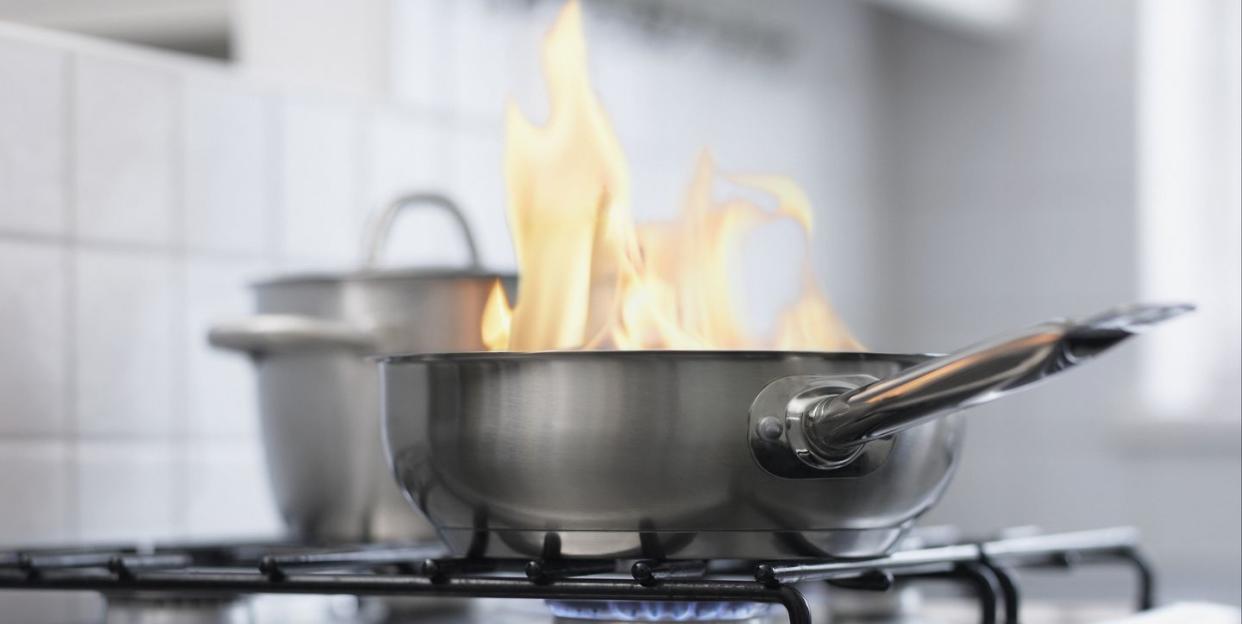Why You Should Never Use Water to Put Out a Grease Fire

The holidays are all about seeing family and eating tons of good food, but unfortunately all that time spent in the kitchen means it's also a popular time for kitchen fires, according to the National Fire Protection Association (NFPA). Thanksgiving is the peak time for home cooking fires, followed by Christmas Day and Christmas Eve.
Turning away from watching A Christmas Story on TV to see flames shooting up from the stove would catch anyone off guard, and that's why it doesn't hurt to refresh your safety plan in the advent of a possible accident - especially because grease fires require different protocol than ones caused by trash, wood, paper, or electrical equipment.
The most important thing to remember: Never, ever use water to put a grease fire out, as it can make the problem worse. "Adding water to a hot pan of oil has a volatile effect that can cause fire to escape from the pan," Sharon Cooksey, a spokeswoman for Kidde, tells GoodHousekeeping.com.
Instead, keep a lid near the stove when you're cooking so you can smother a small fire before it grows. Turn the burner off and leave the pan covered until it's completely cooled. You can also use a fire extinguisher rated for kitchen use (Class B): "Stand back approximately 5 to 6 feet from the fire and follow the P-A-S-S method," Cooksey says.
Pull the pin. Point the nozzle away from you and release the locking mechanism.
Aim low. Point the extinguisher at the base of the fire.
Squeeze the lever slowly and evenly.
Sweep the nozzle from side-to-side.
For an oven fire, keep the door closed and turn off the heat. Of course, always call 9-1-1 and exit the house immediately if you have any doubt about extinguishing the flames yourself. Cooking equipment is the leading cause of home fires, causing 48% of home fires that resulted in 21% of the home fire deaths and 45% of the injuries, according to the NFPA.
Before you start cooking this Christmas, follow these safety tips to protect your loved ones and yourself:
Cooking Safety Tips
Check your smoke detectors. Most need replacing every 10 years and new batteries semi-annually.
Clean your stove regularly to prevent grease build-up, which is flammable.
Keep kids and pets at least 3 feet away from the oven and stove at all times.
Don't leave cooking food unattended, especially if you're frying, grilling, boiling, or broiling.
Move flammable objects - oven mitts, wooden utensils, dish towels, etc. - away from the stove.
Make a fire escape plan and practice it regularly with all of your family members.
('You Might Also Like',)

